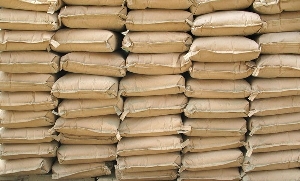- Home - News
- TWI News | TV
- Polls
- Year In Review
- News Archive
- Crime & Punishment
- Politics
- Regional
- Editorial
- Health
- Ghanaians Abroad
- Tabloid
- Africa
- Religion
- Election 2020
- Coronavirus
- News Videos | TV
- Photo Archives
- News Headlines
- Press Release
General News of Monday, 17 December 2007
Source: GNA
Ban on importation of incandescent bulbs soon
Accra, Dec 17, GNA- Government's draft policy on the ban of importation of incandescent bulbs and other high energy consuming lamps is to receive parliamentary approval soon.
The draft policy has received Cabinet approval and would soon be placed before parliament and is expected to be passed into law during the first quarter of next year.
Mr Ernest Asante, Director of Communications and Marketing of the Ghana Energy Foundation disclosed these in an interview with the Ghana News Agency (GNA) in Accra on Monday. He said: "The introduction of the draft policy is the quickest and surest way of reducing energy consumption, particularly among residential consumers."
Mr Asante said available statistics had shown that lighting alone accounts for about 55 per cent of energy used in Ghana, out of which almost 70 per cent was due to the usage of incandescent bulbs. He said since the commencement of the National Implementation of Candescent Fluorescent Lamps Exchange Programme to save about 300 megawatts of electricity, a total of 4.3 million the fluorescent bulbs have been installed freely nationwide.
Mr Asante said prior to the commencement of the project, about 35 per cent of people resorted to the use of incandescent bulbs. He said Ghanaians had welcomed the project and some people were replacing their incandescent bulbs with the new ones.
Mr Asante said distribution and installation of the bulbs in the Northern, Upper East and Upper West Regions was 100 percent complete. He said distribution in Ashanti, Greater Accra, Volta and Central Regions was about 90 per cent, 97 per cent, 90 per cent and 95 per cent complete respectively.
Mr Asante said "This is a one time action which is to cause a paradigm shift from the use of incandescent bulbs to the use of the new ones." He said government would not continue to distribute the new bulbs free of charge after the end of the exercise early next year. Mr Asante noted that prior to the commencement of the project, the Ministry and the Energy Foundation embarked on a programme to replace the old bulbs with the energy saving ones in the Ministries, secondary schools, military and police barracks and all the tertiary institutions in Accra.
He said the programme was being replicated at the regional level. Mr Asante noted that the Foundation has currently replaced all candescent fluorescent lamps type T12 in the public institutions in Accra with the CFL type T5 that conserves about 40 percent energy. He said about 5,000 people have been employed for the exercise including personnel from the National Youth Employment Programme. Mr Asante said "We have cautioned the workers not to take money from any body during the distribution of the CFL bulbs because it is a criminal offence."










